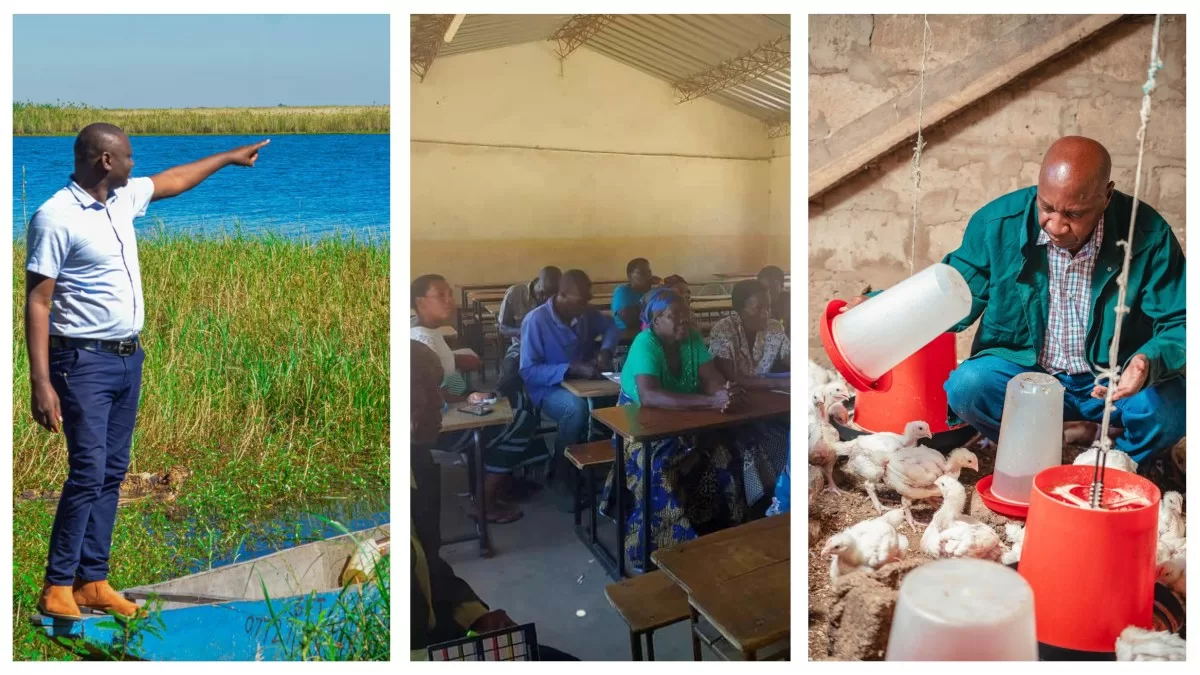Alick Mandandi grew up in rural Zambia, where he saw hardworking men, like his father, struggle with poor health and neglect after retirement. Witnessing his father’s decline due to untreated chronic illness deeply impacted him and inspired the Men’s Healthy Initiative. Through this project, Alick aims to provide elderly men with healthcare, nutrition, and purpose. Here, he shares the story of one such man whose life he hopes to transform.
The Teacher Who Taught Us Dignity
The morning sun in Sesheke rises gently, warming the tin roofs of scattered homes. In one of these homes, modest but dignified, Mr. Charles begins his day. A retired primary school teacher of 68, his gait is slower now, his breath heavier, but his mind remains sharp, filled with memories of chalk dust, curious eyes, and the joy of shaping young minds.
I met Mr. Charles under the mango tree in his yard, where he often sits with a worn-out radio and a cup of unsweetened tea. His handshake was firm, and his eyes sparkled with the quiet resilience of a man who has weathered life’s storms. But as we spoke, the quiet toll of age and illness began to surface. “Every day is a challenge,” he told me, “but I try not to let the sickness win.”
Six years ago, Mr. Charles was diagnosed with hypertension and type 2 diabetes. Since then, life has changed dramatically. Once a respected figure in the classroom, he now lives with chronic fatigue, dizziness, and joint pain. The nearest clinic is over 15 kilometers away. He has no own means of transportation. “Sometimes I walk there and hope a car picks me up,” he said with a tired laugh. “It’s not easy.”
Managing his condition requires more than just medication but it also demands a disciplined diet, regular checkups, and rest. Balancing this kind of lifestyle has become hard for him. Healthy food is expensive, and traveling for medical care is even more difficult. Still, he receives support from his sons and daughters, who now live in different towns and cities. They send what they can from airtime, groceries, or a little cash. “They try,” he said, smiling faintly. “Even if it isn’t much, it helps me get by.”
As he spoke, what became most apparent wasn’t just the physical toll of his illness but also it was the ache for purpose. When I asked what he would do if he had more energy and support, his eyes lit up. “I would teach again. Not full-time, maybe just evening lessons for the village children. Or raise chicken. Something to make me feel useful again.”
That moment stayed with me. It was not just his health that had been compromised, but his sense of identity. Mr. Charles isn’t merely a patient or statistic, but he is a father, a mentor, a memory keeper. Yet he, like many other elderly men in Zambia, is slowly fading into the margins of society, his contributions forgotten and his wisdom overlooked.
This is where my initiative the Men’s Healthy Initiative comes in. It is designed to restore both health and dignity to elderly men like Mr. Charles. Through the initiative, healthcare will be brought closer to them by establishing mobile outreach services and transport assistance for clinic visits. Nutrition will be addressed by providing food packs tailored for people managing chronic illnesses, along with home garden kits to grow essential foods. Most importantly, the program will restore health, purpose and offering support for small scale farming, and creating spaces for community engagement where retired men can mentor, teach, or share skills that still hold value.
Men like Mr. Charles are not burdens. They are the foundation of our communities. But stigma, poverty, and long neglect have worn them down. Medicine treats the body, but healing also comes from being seen, respected, and given the chance to matter again.
As I left his home, Mr. Charles handed me an old science reader, one he had used in his classroom many years ago. “Use it to teach someone,” he said. “Knowledge should never gather dust.”
His words have stayed with me not just because of the book, but because of the man behind it. I carry with me not only his story but a piece of his legacy. Some stories hit close to home. This one lives in my bones.
The Men’s Healthy Initiative is not just a response to a health crisis. It is a tribute to wisdom, to resilience, and to men like Mr. Charles who gave us their best years. It’s time we gave something back.
______________________________________
Learn more about the kanthari course at: www.kantari.org



